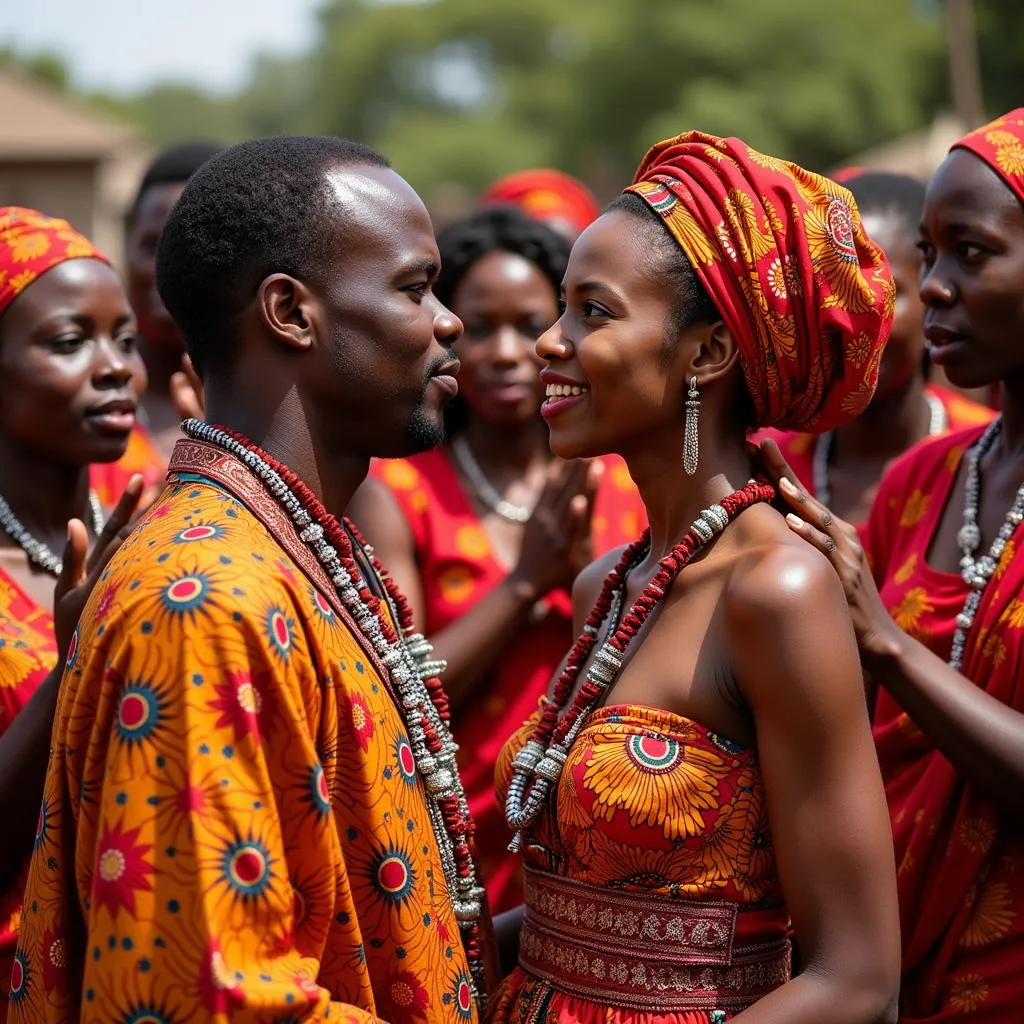Exploring African American Culture in the United States: A Rich Tapestry of History, Art, and Influence
African American culture is a vital and integral part of the American landscape, woven into the fabric of the nation’s history, art, music, and everyday life. It’s a vibrant tapestry that has evolved over centuries, shaped by experiences of resilience, creativity, and a profound connection to heritage. Understanding African American Culture In The United States requires a deep dive into its roots, its triumphs, and its ongoing impact on society.
A Journey Through Time: From Slavery to Civil Rights and Beyond
The story of African American culture in the United States is a story of survival, resistance, and cultural innovation. The legacy of slavery, a dark chapter in American history, left an indelible mark on the African American experience. Yet, even in the face of unimaginable hardships, African Americans found ways to express their humanity, their resilience, and their cultural heritage through music, storytelling, and traditions.
During the period of Reconstruction following the Civil War, African Americans began to make strides toward greater freedom and equality. This era saw the rise of Black churches, schools, and businesses, fostering a sense of community and cultural pride. The Civil Rights Movement of the 20th century, a pivotal moment in American history, further amplified the fight for equality and justice, fueled by the power of music, poetry, and nonviolent resistance.
The Power of Music and the Rhythm of Soul
Music has been a defining force in African American culture, acting as a medium of expression, storytelling, and cultural transmission. From the spirituals sung during slavery to the blues, jazz, gospel, and hip-hop that emerged later, African American music has not only captivated audiences but also shaped the soundscape of American music as a whole.
“Music is a powerful language that transcends boundaries and connects us to our roots. It’s a way for African Americans to express their joys, their struggles, and their hopes for the future.” – Dr. Maya Thompson, Professor of Music History at the University of California, Berkeley
The Impact of Jazz
Jazz, with its improvisational nature and blend of African and European influences, became a symbol of African American creativity and artistic expression. It gained international recognition, attracting musicians and audiences worldwide.
Hip-Hop: A Cultural Revolution
Hip-hop, born in the Bronx in the 1970s, emerged as a powerful force in African American culture. This genre, encompassing music, dance, fashion, and spoken word, became a voice for the marginalized, a platform for social commentary, and a catalyst for cultural change.
The Visual Arts: From Quilts to Contemporary Creations
The visual arts within African American culture are as diverse as the experiences they represent. From the intricate designs of quilts, often imbued with stories and family histories, to the bold expressions of contemporary artists, African American visual arts challenge perceptions, celebrate heritage, and inspire dialogue about social justice.
“Quilting is a tradition that goes back generations, a testament to the ingenuity and resourcefulness of African American women. Each stitch tells a story, a story of resilience, of community, and of enduring hope.” – Ms. Sarah Jones, Master Quilter and Founder of the Southern Quilting Guild
The Legacy of African American Art
Artists like Jacob Lawrence, Faith Ringgold, and Kara Walker have left an indelible mark on American art, challenging traditional perspectives and bringing to light the stories of African American history and experiences. Their works offer insights into the complexities of race, identity, and societal injustices.
Culinary Delights: A Taste of Tradition and Innovation
African American cuisine is a testament to culinary ingenuity and a celebration of flavors and traditions passed down through generations. From soul food staples like fried chicken and collard greens to the innovative creations of contemporary chefs, African American food is a delicious reflection of cultural heritage and resilience.
Soul Food: Comfort and Tradition
Soul food, born out of necessity and resourcefulness, serves as a reminder of African American culinary prowess. Its rich flavors and hearty dishes offer comfort, nourishment, and a connection to ancestry.
The Evolution of African American Cuisine
Today, chefs like african american female artists are reimagining traditional African American dishes, blending modern techniques with ancestral flavors, and showcasing the versatility and sophistication of this unique cuisine.
A Cultural Landscape in Flux: The Future of African American Culture
African American culture continues to evolve, reflecting the changing social landscape and the diverse experiences of its people. With each generation, new artistic expressions, musical styles, and cultural traditions emerge, while the core values of resilience, creativity, and a connection to heritage remain strong.
The future of African American culture lies in embracing innovation, celebrating diversity, and continuing to use art, music, and storytelling as powerful tools for social change, cultural enrichment, and empowerment.
Frequently Asked Questions
1. How has African American music influenced American music as a whole?
African American music has had a profound impact on American music, influencing genres like blues, jazz, rock and roll, pop, and country. The rhythm, melody, and storytelling elements of African American music have become woven into the fabric of American music.
2. What are some notable contributions of African American artists to the visual arts?
African American artists have made significant contributions to the visual arts, from the quilts of the Harlem Renaissance to the contemporary works of artists like Kara Walker and Theaster Gates. They have challenged traditional perspectives, explored themes of race and identity, and brought to light the stories of African American experiences.
3. How has African American culture impacted American society as a whole?
African American culture has had a profound impact on American society, shaping music, art, literature, food, fashion, and language. It has also played a crucial role in social movements, advocating for justice, equality, and civil rights.
4. What are some ways to learn more about African American culture?
There are many ways to learn more about African American culture:
- Visit museums and cultural institutions dedicated to African American history and art.
- Attend performances and concerts featuring African American artists.
- Explore books, movies, and documentaries that focus on African American experiences.
- Engage with communities and organizations dedicated to promoting African American culture.
5. What are some resources available to those interested in African American history and culture?
There are many resources available to those interested in learning more about African American history and culture, including:
- The National Museum of African American History and Culture (https://nmaahc.si.edu/)
- The Schomburg Center for Research in Black Culture (https://www.nypl.org/locations/schomburg)
- The African American Museum in Philadelphia (https://www.aampmuseum.org/)
- The National Association for the Advancement of Colored People (NAACP) (https://www.naacp.org/)
6. What are some contemporary trends shaping African American culture?
Contemporary trends shaping African American culture include the rise of social media as a platform for activism and cultural expression, the increasing visibility of African American voices in film, television, and literature, and the growing influence of African American cuisine in the culinary world.



